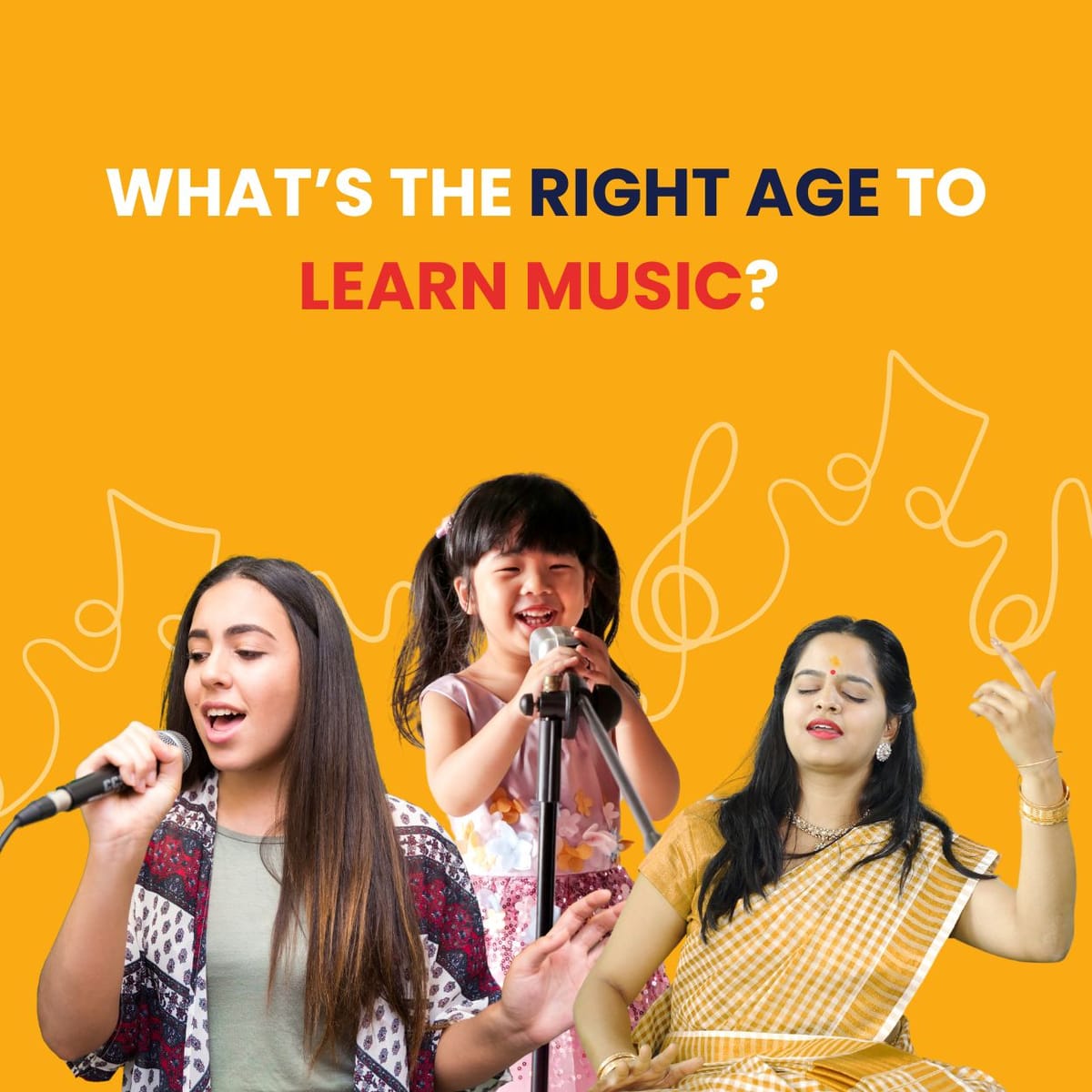
Table of Contents
When it comes to learning music, many people wonder if there's a “perfect” age to start. The truth is, there isn’t a single answer.
Whether you’re a young child just discovering sounds or an adult seeking a new hobby, the best time to learn music is whenever you start. Music is a skill that grows with practice, dedication, and enjoyment.
Let’s explore why age isn’t a barrier and how anyone—young or old—can embrace the joy of learning music.
1. When Can a Child Start Learning Music?
Parents often wonder when their child is “ready” for music lessons. While some might point to specific ages, what truly matters is whether the child is showing signs of readiness, rather than hitting a certain birthday.
Here are some indicators that your child might be ready to start learning music:
- Motor Skills Development: Playing an instrument involves using both hands, fingers, and sometimes even feet. If your child can hold small objects or manage basic tasks that involve coordination, they’re likely ready to start learning simple music basics.
- Clear Speech and Language Skills: If your child is starting to form clear sentences and communicate effectively, they’re prepared to understand instructions and even memorize lyrics or rhythm patterns. And they will be able to sing properly.
- Ability to Focus for Short Periods: Learning music requires a bit of concentration. If your child can focus on a task or follow along in an activity for 20-30 minutes, they’ll likely be able to handle a music lesson.
- Interest in Music: Is your child naturally drawn to musical sounds, dancing, or singing? Interest is one of the most important signs of readiness. If they’re curious about music, that spark of interest is worth nurturing.
- Following Instructions: Whether it’s playing a simple tune or clapping to a rhythm, being able to follow directions is essential. If your child can listen and follow along with basic tasks, they’re ready to explore music with guidance.
Remember: If your child meets these readiness signs, they can begin learning music, regardless of age. Even if they’re as young as four, as long as they’re excited about music, it’s a great time to start.
2. Can Adults Learn Music?
Absolutely! If you’re an adult interested in learning music, there’s no “too late” to get started. Many people think music is only for the young, but that couldn’t be further from the truth.
Here’s why adults can—and should—consider learning music:
- A Great Way to Relieve Stress: Life can be busy and stressful, but music is an incredible outlet. It provides a break from daily routines and offers a space for self-expression and relaxation.
- A Skill That Improves with Practice: Music isn’t about reaching a specific level quickly; it’s about consistent practice and gradual improvement. Whether you’re strumming a guitar, tapping a keyboard, or even humming a tune, the more you practice, the better you’ll get - at any age.
- Mental Benefits at Any Age: Studies have shown that music benefits the brain—helping with memory, focus, and even emotional resilience. Adults learning music often find that it sharpens their minds and boosts creativity.
- Building Confidence: Learning something new as an adult can be deeply empowering. Each step forward—whether it’s learning a new chord or playing a simple song—builds confidence and gives you a sense of accomplishment.
- Flexible Learning Pace: As an adult, you control the pace. You can learn at your own speed, making it as intensive or relaxed as you want.
Learning music as an adult opens doors to creativity and personal growth, making it as rewarding as it is enjoyable. So if you’ve been thinking about picking up an instrument, now’s the perfect time!
3. The Joy of Learning at Any Age
In the end, there’s no “right age” to start learning music. Children can start when they show readiness, and adults can jump in anytime they feel inspired. Music is a journey that grows with you, regardless of when you start.
Whether you’re helping your child take their first musical steps or starting your own music adventure as an adult, embrace the process. Every practice session, every note learned, brings you closer to the joy and satisfaction of making music. 🎶
